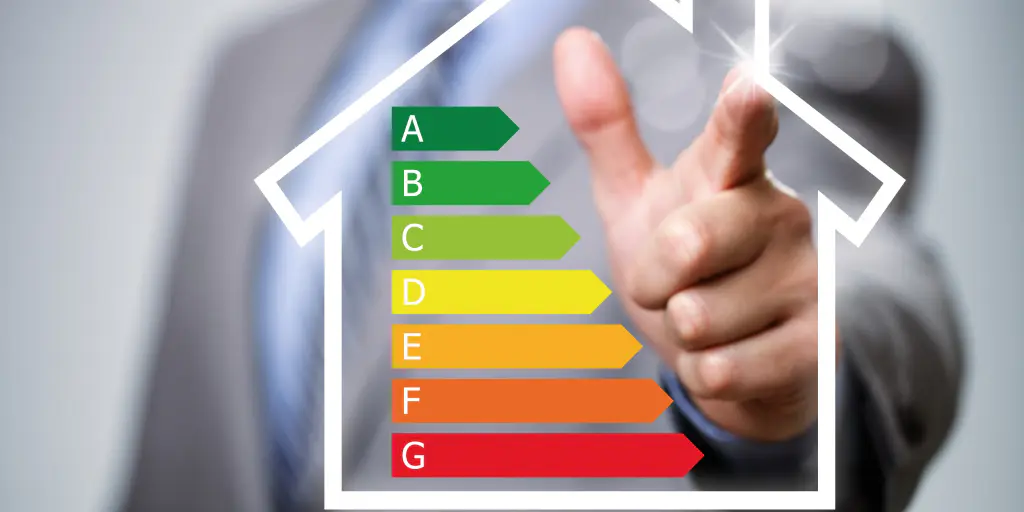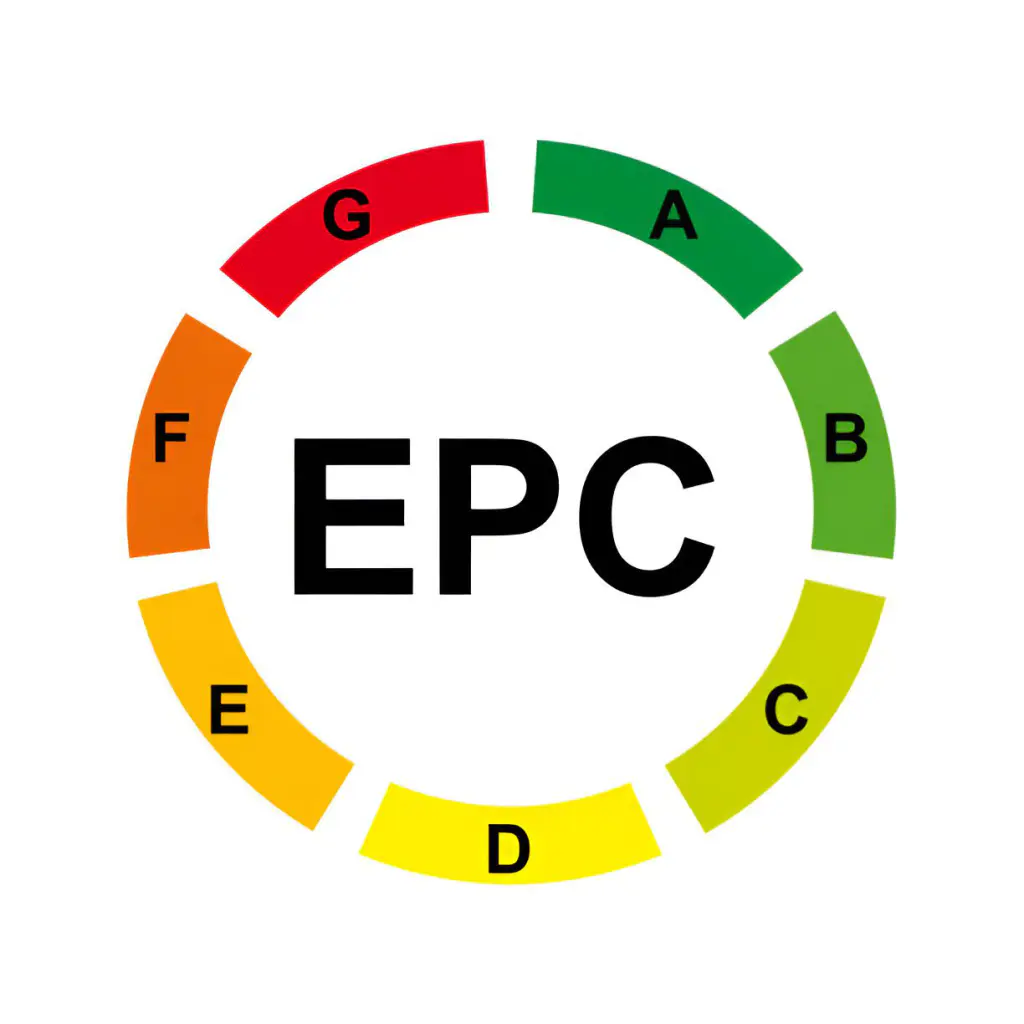Navigating the realm of Energy Performance Certificates (EPC) has been a journey filled with eye-opening insights into the world of energy efficiency in properties. The importance of EPCs in evaluating environmental impact and energy consumption is just the tip of the iceberg in this intricate process.

Join me as we uncover the layers of significance behind EPCs, exploring the nuances of compliance, benefits of higher ratings, and practical strategies for fostering greener living spaces. Let’s unravel the mysteries surrounding EPCs together and discover the keys to unlocking a more sustainable future.
Understanding Energy Performance Certificates
Understanding Energy Performance Certificates is essential for property owners and renters to assess and improve their building’s energy efficiency. Energy efficiency tips provided in the EPC offer valuable insights into reducing energy consumption and lowering costs.
By implementing energy-saving strategies recommended in the certificate, such as upgrading to high energy class household appliances, using energy-saving lightbulbs, improving insulation, and investing in double- or triple-glazed windows, property owners can enhance their property’s efficiency and reduce their environmental impact. The energy rating insights outlined in the EPC guide individuals on how to achieve a better energy efficiency class, potentially increasing the property’s value.
Efficiency enhancement suggestions, like incorporating renewable energy systems, further contribute to lowering energy bills and promoting sustainability. By following the EPC’s recommendations, property owners can make informed decisions to create a more energy-efficient and environmentally friendly living or working space.
Legal Obligations and EPC Requirements
To ensure compliance with legal requirements in Malta, obtaining an Energy Performance Certificate (EPC) is mandatory for all buildings, whether for sale or rent. Landlord responsibilities encompass the obligation to provide a valid EPC for property rental compliance. Not having an EPC can lead to fines and impact property valuation. The fines for not having a valid EPC can be severe, potentially causing delays in property transactions and diminishing the property’s value.

It’s crucial to prioritize energy efficiency not only for legal reasons but also for environmental sustainability and cost savings. Implementing energy-saving tips such as using energy-efficient appliances, installing proper insulation, and opting for energy-efficient lighting can’t only improve your EPC rating but also reduce energy consumption.
Therefore, staying informed about EPC requirements, understanding the consequences of non-compliance, and taking proactive steps to enhance energy efficiency are essential aspects of property management.
Process of Obtaining an EPC
When acquiring an Energy Performance Certificate (EPC) for a property in Malta, the initial step involves engaging a registered EPB assessor for the assessment process. Accredited assessors play a crucial role in evaluating the property’s energy efficiency and issuing the necessary certification.
The registration process entails contacting a qualified assessor and arranging for a property inspection to assess its energy performance. Cost considerations come into play, with fees set by the assessor for conducting the assessment and a registration fee charged by the Building Regulation Office (BRO).
Property inspections are thorough, encompassing elements like insulation, heating systems, and energy usage to determine the property’s energy efficiency rating accurately. Renewed certifications may be required after ten years or major renovations to ensure the EPC reflects the current energy performance of the property accurately.
It’s essential to engage with reputable assessors and follow the prescribed process meticulously for a valid and informative Energy Performance Certificate.
Benefits of High EPC Ratings
High EPC ratings can significantly enhance a property’s value and energy efficiency. Properties with high EPC ratings not only command higher prices in the market due to their energy efficiency but also benefit from reduced energy costs over time.

Investing in insulation upgrades and energy-efficient lighting can lead to improved energy efficiency, lower utility bills, and a reduced environmental impact. By prioritizing energy-efficient upgrades, property owners can’t only enjoy the immediate benefits of lower energy consumption but also contribute to environmental conservation efforts.
Additionally, the long-term savings on energy costs coupled with the positive environmental impact make high EPC ratings a valuable asset for any property. Therefore, considering insulation upgrades, energy-efficient lighting installations, and other energy-saving measures can’t only enhance property value but also lead to a more sustainable and cost-effective property ownership experience.
Compliance and Penalties for EPC
Transitioning from the discussion on the benefits of high EPC ratings, understanding compliance and penalties for EPC is crucial in maintaining legal requirements and avoiding potential consequences. Ensuring that properties have a valid Energy Performance Certificate (EPC) is a legal obligation for all buildings being sold or rented.
Failure to comply with this requirement can result in significant fines and legal ramifications. The enforcement of EPC regulations is taken seriously to encourage energy efficiency and reduce carbon emissions. Penalties for non-compliance can include fines, the inability to market the property, and delays in property transactions. Moreover, not having a valid EPC in place can have a negative impact on the overall value of the property.
Therefore, it’s essential for property owners to adhere to EPC regulations to avoid facing these consequences and to uphold legal standards in the energy efficiency of buildings.
Tips for Improving Energy Efficiency
To enhance the energy efficiency of a property, consider implementing various strategies focused on optimizing energy consumption and reducing environmental impact. Energy saving tips can include upgrading to eco-friendly appliances, such as refrigerators and washing machines with high energy efficiency ratings.
Sustainable living practices like using energy-saving lightbulbs and improving insulation in walls and roofs can significantly reduce energy consumption. Green home improvements involve investing in double- or triple-glazed windows and considering renewable energy sources like solar panels or wind turbines.
Energy efficiency hacks such as regular maintenance of heating and cooling systems can ensure optimal performance and lower energy costs. By incorporating these recommendations, you not only enhance the energy efficiency of your property but also contribute to environmental conservation.
Embracing these energy-efficient practices can lead to long-term benefits, including lower utility bills, increased property value, and a reduced carbon footprint.
Frequently Asked Questions
Can an EPC Be Transferred to a New Owner if a Property Is Sold Within the Validity Period?
Yes, an EPC can be transferred to a new owner if a property is sold within the validity period. It is the buyer’s responsibility to ensure the certificate transfer, as it is crucial for EPC compliance during property transfer.
Are There Any Government Incentives or Grants Available for Implementing Energy Efficiency Improvements Recommended in an Epc?
Yes, there are government incentives and grants available for implementing energy efficiency improvements recommended in an EPC. These programs offer financial assistance for green improvements, encouraging sustainable upgrades that lead to energy savings.
How Can Landlords or Property Owners Dispute the Findings or Rating in an EPC Assessment?
When disputing EPC findings, address rating challenges by reviewing assessment discrepancies. Consider property adjustments for certification disputes. Engage in the review process by providing evidence to support adjustments or requesting a reassessment if needed.
Are There Specific Regulations or Requirements for Commercial Properties in Malta Regarding Epcs?
There are specific regulations for commercial properties in Malta concerning EPCs. Ownership transfer involves updating EPC details. Government incentives may exist for energy-efficient upgrades. To dispute findings, a reevaluation request can be submitted.
Is It Possible to Request a Reevaluation of an EPC if Significant Energy Efficiency Upgrades Have Been Made to a Property Before the Expiration of the Current Certificate?
Reevaluation request for EPC due to energy upgrades before certificate expires can impact property transfer. Government incentives may apply for energy improvements. Dispute process available for assessment rating. Commercial regulations in Malta might have specific requirements.
Conclusion
In conclusion, Energy Performance Certificates (EPC) play a crucial role in assessing a building’s energy efficiency and environmental impact. Understanding the legal obligations, benefits of high ratings, and compliance regulations surrounding EPCs is essential for creating sustainable living spaces.
By obtaining and updating EPCs, homeowners can take actionable steps towards reducing their carbon footprint and contributing to a greener future. Remember, small changes in energy efficiency can lead to significant environmental benefits in the long run.









